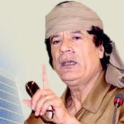ON THE MARGIN -- As usual, Washington's foreign ambassadors went to the two conventions in force. Though they pay their own way, they are officially guests of the political parties, which corral them into a assigned areas to witness the proceedings, limit their access to the delegates' portion of the floor to a few group visits, and organize programs of activities outside the convention itself. At the Republican Convention this week, the ambassadors' schedule (interspersed with the occasional policy conference) included a visit to an ethanol production plant in Winthrop, Minn., and a tour of Minnesota Lt. Gov. Carol Molnau's 1,300-acre farm in Lafayette. The ambassadors were also expected to drop by the Medtronic Cardiac Rhythmic Disease Management Facility, and to take in Best Buy's corporate headquarters. Another aspect of the conventions that gets little mention is the presence of foreign politicians. Among those invited to watch the Democrats in Denver, for example, were Waldemar Pawlek, the deputy prime minister of Poland, Mary Robinson, the former president of Ireland, Joe Clark, the former prime minister of Canada, and his former Norwegian counterpart, Kjell Magne Bondevik. Oh, and then there are certain aspects of the parties' platforms -- generally ignored by media coverage of the conventions -- which might pique the interest of foreign diplomats. The Democratic platform, for example, says an Obama administration would double the budget of the International Atomic Energy Agency (IAEA) so that it can enlarge its surveillance efforts, and work towards banning fissile material for nuclear weapons. It states that "Europe remains America's indispensable partner," and asserts that in the Middle East a Democratic presidency's "starting point must always be our special relationship with Israel."
Corridors of Power: Diplomats at the Conventions, Georgia Fallout, and Gadhafi

